Baseball as we know it was introduced to the country in 1872. To this day, the game remains the most popular sport in the nation for participants and spectators, alike. In 1907, Tsuneo Matsudaira commented: “the game spread, like a fire in a dry field, in summer, all over the country, and some months afterwards, even in children in primary schools in the country far away from Tōkyō were to be seen playing with bats and balls“.
Oh. Did I neglect to mention? The nation we’re talking about, is Japan.
Professional baseball got off to a rocky start in 1920s Japan and continued to flounder, until 1934. That’s when media bigwig Matsutarō Shōriki pulled off a “goodwill tour” with an all-star American team including Babe Ruth, Jimmie Foxx, Lou Gehrig, Connie Mack and Charlie Gehringer. Even Moe Berg was part of that 1934 entourage, the Jewish catcher known as “the brainiest guy in baseball,” who went behind enemy lines during World War 2, to spy on Nazi Germany.
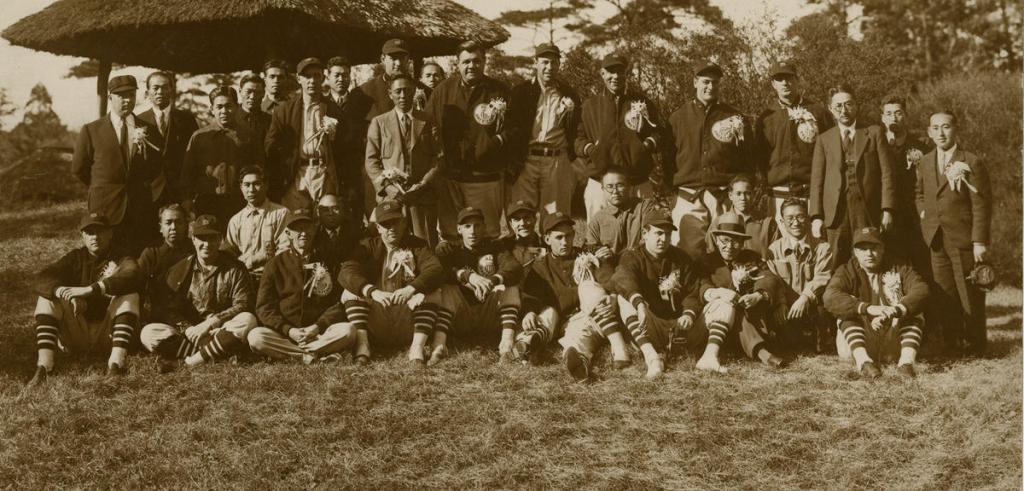
Much has been written of 1930’s Japan and the military officers, who brought the nation to war. How different the 20th century could have been, had those guys picked up baseball, instead.
The first Japanese professional league was formed in 1936, becoming large enough to split into two leagues in 1950, the Central and Pacific.
Today, the Kansai region of Honshu is the 2nd largest metropolis, in all Japan. That’s where you’ll find the Hanshin Tigers, those perennial underdogs of Nippon Professional Baseball and arch-rival to the Yomiuri Giants of Tokyo, widely regarded as the kings of Japanese baseball.
As a life-long Red Sox fan, this story is beginning to sound familiar.
35 years ago today was a time of unbridled joy for delirious Tigers fans, following Hanshin’s 6-2 drubbing of the Seibu Lions to win the ultimate prize, the Japan series pennant of 1985.
Now you may not know this, but Japan is one of the largest markets in the world for Kentucky Fried Chicken, #3 behind the United States and China. Not bad for a fast food outfit that opened its first Japanese franchise, only fifteen years earlier.
The Boston baseball fan is well acquainted with the “Curse of the Bambino”, the 86-year World Series championship drought, second only to the “Curse of the Billy Goat” that denied victory to long-suffering Chicago fans, for 106 years.
Since 1985, Japanese mothers have scared wayward children into acting right, with the curse of Colonel Sanders.
The Hanshin club emerged victorious in 1985, due in large part to the efforts of American slugger, Randy Bass. Delirious after unexpected victory in game one and superstitious as baseball fans the world over, Hanshin supporters gathered at the Ebisu Bridge over the Dōtonbori river in Osaka, to partake in one of the most bizarre spectacles, in modern sports.
Fans would shout out the names of Tigers players and someone who resembled that player, even vaguely, would jump into the river. There being no Caucasians in attendance to represent Mr. Bass, the crowd took hold of a storefront statue of Harlan Sanders, and threw it into the River.
What the hell. They both had beards.
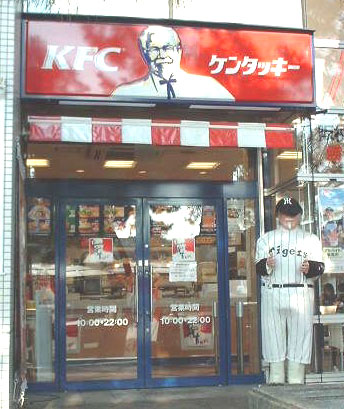
Thus began the curse of Colonel Sanders, a losing streak brought on by the ghost of a man who didn’t appreciate being thrown into a river. Brief rallies in 1992 and again in ’99 brought hope once again to the Hanshin faithful, (gosh, this story sounds Really familiar now), only to have cruel fate, block the way. Repeated efforts were made to retrieve the Colonel from the river, only to be met with failure. The curse, dragged on.
The joy of victory smiled upon the land of Hanshin once again in 2003, when Yomiuri Giants MVP Hideki Matsui was traded to the New York Yankees, clearing the way to a Central League pennant for Hanshin. Even so, final victory remained elusive. The Japan series went to the Fukuoka Daiei Hawks that year, in 7 games.
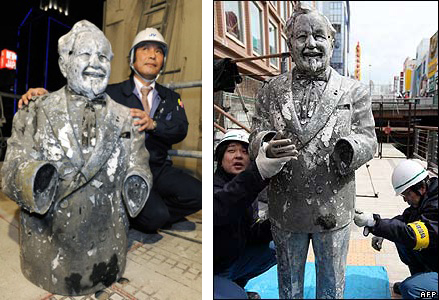
Celebration turned to tragedy that year, when thousands of Tigers fans jumped into the river. 24-year-old Masaya Shitababa, drowned. The Osaka city council ordered construction of a new bridge over the Dōtonbori beginning in 2004, making further such jumps, next to impossible.
Divers discovered the upper part of Harlan Sanders’ statue on March 10, 2009 and the lower piece, the following day. And yet the Colonel’s other hand and eyeglasses, were nowhere to be found.
Colonel Sanders’ left hand and spectacles remain missing to this day and the KFC where it all started, is closed and gone forever. So it is for long suffering fans of the Hanshin Tigers, the curse of Colonel Sanders, lives on.
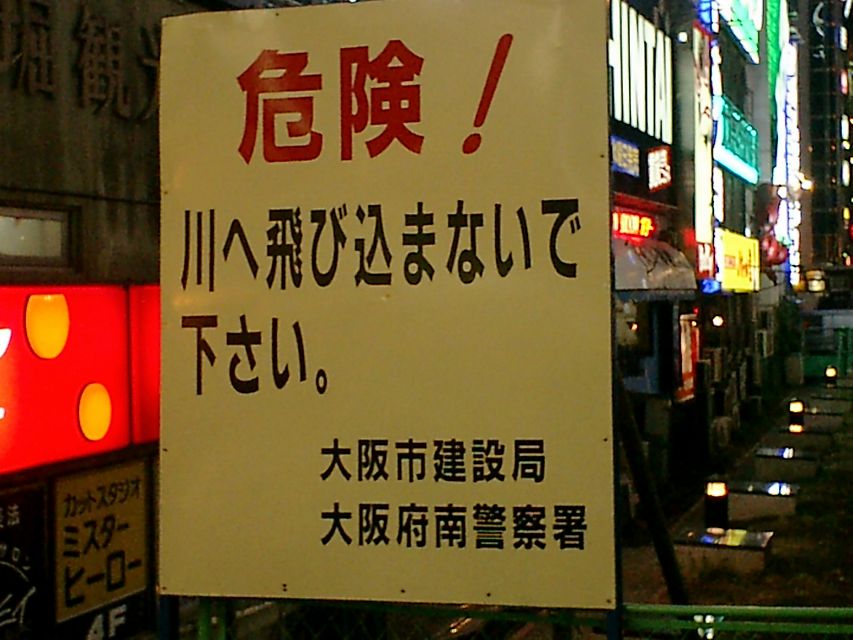

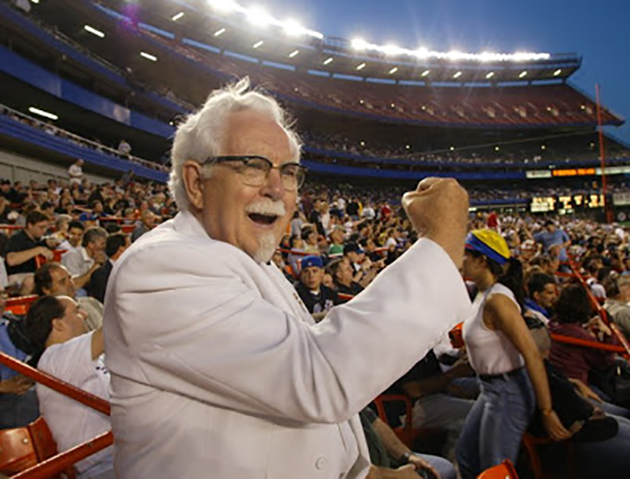

You must be logged in to post a comment.